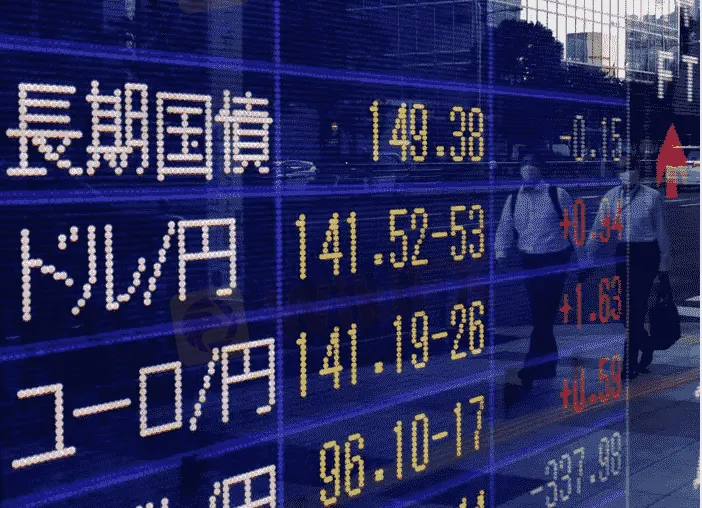简体中文
繁體中文
English
Pусский
日本語
ภาษาไทย
Tiếng Việt
Bahasa Indonesia
Español
हिन्दी
Filippiiniläinen
Français
Deutsch
Português
Türkçe
한국어
العربية
King dollar stomps on yen as U.S. yields rise
Abstract:The dollar hit a 24-year peak against the yen and reached new highs versus the Australian and New Zealand dollars on Wednesday after U.S. economic data reinforced the view that the Federal Reserve will continue aggressive policy tightening.

Economic jitters elsewhere, pushing investors to safety, also supported the U.S. currency.
The dollar soared as high as 144.38 yen in Asia trade, hitting the level for the first time since August 1998, while the euro wallowed below 99 cents after dipping as low as $0.9864 overnight, its lowest since late 2002.
This caused the U.S. dollar index, which measures the greenback against six major peers, to hit a fresh 20-year high of 110.69 early on Wednesday.
The European Central Bank is seen as more likely than not to deliver a massive 75 bps rate hike on Thursday, but these expectations are doing little to support the currency in the face of a battered European economy and Russias decision to keep the key Nord Stream 1 gas pipeline shut indefinitely.
In contrast, a report overnight showed the U.S. services industry unexpectedly picked up last month, supporting the view that the economy is not in recession and giving the Fed leeway for another 75-basis-point rate rise on Sept. 21.
But the moves were most dramatic for the yen, whose tumble, even by its own recent standards, has been precipitous. The dollar has climbed 3.7% from 138.96 yen just since the end of August.
Japans currency is extremely sensitive to moves in long-term U.S. interest rates, and the yield on the 10-year Treasury note climbed as high as 3.365% in Tokyo trading, a level not seen since June 16.
“The speed at which the dollar is appreciating against the yen is getting out of control and is at risk of becoming unanchored,” said Davis Hall, head of capital markets at Indosuez Wealth Management Asia.
“Right now youre drawing in everybody to stop out by throwing in the towel,” he said. “We could reach 148 without (Ministry of Finance) action.”
Japans top government spokesperson, Chief Cabinet Secretary Hirokazu Matsuno, told a news briefing that the administration would like to take necessary steps if “rapid, one-sided” moves in currency markets continue, ratcheting up the rhetoric.
However, many analysts see intervention as difficult.
“Foreign central banks are prioritising dealing with inflation, and cannot afford to worry about exchange rate fluctuations,” said Rikiya Takebe, senior strategist at Okasan Securities.
“Currency intervention or policy revisions by the Bank of Japan are likely to be difficult, and it will not be easy to stop the yen from falling.”
Sterling fell 0.17% to $1.1497, approaching the 2 1/2-year low of $1.1444 reached on Monday, with Britain also entangled in the energy crisis, despite new prime minister Liz Trusss plans for a massive support package.
Back in Asia, many currencies were trading at or around multi-year lows. Chinas yuan sank to a two-year trough, closing in on the 7-per-dollar mark despite steps by authorities to stem its decline.
The onshore yuan weakened to a low of 6.9808, the softest level since August 2020, and the offshore yuan was even closer to the key level, falling as low as 6.9949 per dollar.
The New Zealand dollar dropped to its lowest since May 2020 at $0.5997, and the Singapore dollar declined to the weakest since June 2020 at 1.4107 per greenback.
Cryptocurrency bitcoin slumped to the lowest since June 19 at $18,540, extending a 5% tumble from Tuesday. The overall crypto market capitalisation dropped below $1 trillion once again, having been as high as nearly $3 trillion in late 2021.

Disclaimer:
The views in this article only represent the author's personal views, and do not constitute investment advice on this platform. This platform does not guarantee the accuracy, completeness and timeliness of the information in the article, and will not be liable for any loss caused by the use of or reliance on the information in the article.
Read more

Top 10 Trading Indicators Every Forex Trader Should Know
Master the top 10 Forex trading indicators to analyze real-time Forex quotes, trends, and market signals. Learn strategies to boost accuracy and avoid mistakes.

Geopolitical Events: What They Are & Their Impact?
You've heard many times that geopolitical events have a significant impact on the Forex market. But do you know what geopolitical events are and how they affect the FX market? Let us learn about it today.

Why Do You Feel Scared During Trade Execution?
Trade execution is a pivotal moment for traders. It is when analysis turns into action, and potential profits or losses become reality. However, for many traders, this moment is accompanied by fear. Why does this happen, and how can you address it?

WikiEXPO Global Expert Interview: Simone Martin—— Exploring Financial Regulation Change
In the midst of financial innovation and regulation, WikiGlobal, the organizer of WikiEXPO, stays abreast of industry trends and conducts a series of insightful and distinctive interviews on pivotal topics. We are delighted to have the privilege of inviting Simone Martin for an in-depth conversation this time.
WikiFX Broker
Latest News
Geopolitical Events: What They Are & Their Impact?
Top 10 Trading Indicators Every Forex Trader Should Know
Why Do You Feel Scared During Trade Execution?
Currency Calculator


